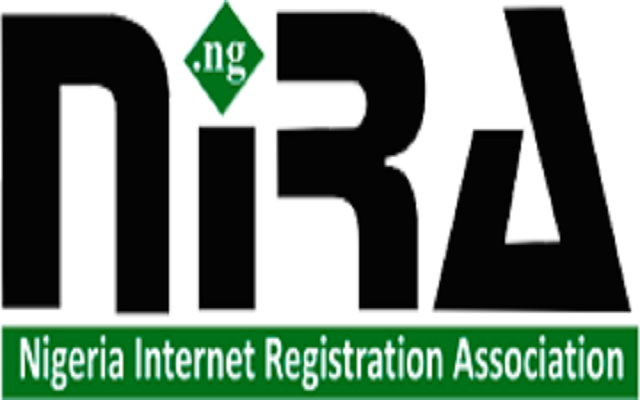The Nigeria Internet Registration Association (NiRA), the registry that controls the administration of .ng domain name, which is Nigeria’s identity in the cyberspace, recorded 22,113 additional domain name registrations from January to December 2015. The figure, which is an improvement on the 18,870 domain names registered in 2014, brings the total number of registered domain names in the country, to about 60,000.
According to latest statistics released on NiRA’s website, the total number of domain registration for the year ending 2015 was 22,113, and the number of renewal of existing registered domain names in the same year, was 14,462. The figures for 2014 were 18,870 for new registration, and 11,319 for renewal.
President of NiRA, Mr. Sunday Afolayan, who confirmed the figures, said association also witnessed an increase in the number of NiRA accredited registrars which rose by five.
“NiRA can now boast of having 53 accredited registrars. We are hopeful the numbers will increase in 2016 with the additional accreditation of local and foreign registrars. It has been proved that with more registrars across the country, Nigerian presence online would increase,” Afolayan said.
A breakdown of the figures for new domain name registration in 2015, show that NiRA recorded the highest number of new .ng domain name registration in July with 2,260 registrations, while it recorded the highest number of renewal of existing registered domain names in March, with 1,362 renewals.
In January 2015, NiRA recorded 1,542 new domain name registrations, 1,029 renewals and 41 transfers of domain name from one registrar to another. In February, it recorded 1,512 new domain name registrations, 1,009 renewals and 45 transfers. In December 2015, it recorded 1,789 new registrations, 1,214 renewals and 85 transfers of domain names.
Explaining the technical details of renewals and transfers, Afolayan said domain names are sold at a cost and also renewed at a yearly cost. The transfers, he said, occur where registrants are not satisfied with the services of a registrar that was managing the domain name, and decided to transfer the services to another registrar, based on dissatisfaction. He, however, said the number of transfers has reduced in recent times, and that NiRA is working towards reducing the number further by ensuring that registrars offer satisfactory services to registrants.
Speaking about NiRA’s plans for 2016, Afolayan told THISDAY that NiRA expects a significant growth in the Domain Name System (DNS) industry , which will give better numbers than what was achieved in 2015.
“We will conduct more trainings on DNS related topics, as well as entrepreneurship trainings that would boost awareness of .ng and the DNS industry especially among our youths. All our activities are geared towards promoting local content in the Information and Communications Technology (ICT) sector. We are hopeful that more Nigerians would be online for the right reasons, especially with the federal government’s plan to increase broadband penetration. This will definitely help to grow the Nigerian economy,” Afolayan said.
He added that NiRA also plans to embark on an extensive online campaign to advocate and promote the adoption of .ng in the country.
“I have no doubt that NiRA is empowering youths, creating wealth and building a prominent space for our registry in the future of Nigeria. There is therefore a need to encourage the Nigerian youths to improve on their Information Technology (IT) skills, which would definitely create job opportunities and ultimately develop our economy. Let us continue to think locally, while acting globally,” Afolayan said.
In technical parlance, .ng domain name is Nigeria’s country code Top Level Domain (ccTLD) system, that identifies Nigerians, and provides access to online transactions on the web. Nigeria has several extensions of domain names such as .ng, .com.ng, .name.ng, .gov.ng, .org.ng, .edu.ng, among others, which are categorised under first, second and third level domain names.
Each country has its own unique identity on cyberspace for all transactions that have to do with world wide web (www). South Africa is identified with .za, Canada is identified with .ca, United States is identified with.com. United Kingdom is identified with .co.uk, among other countries that have unique cyber identities.
Thisday

 Billionaire Watch3 weeks ago
Billionaire Watch3 weeks ago
 Startups4 weeks ago
Startups4 weeks ago
 News4 weeks ago
News4 weeks ago
 News4 weeks ago
News4 weeks ago
 Bitcoin4 weeks ago
Bitcoin4 weeks ago
 Naira4 weeks ago
Naira4 weeks ago
 Forex3 weeks ago
Forex3 weeks ago
 Treasury Bills4 weeks ago
Treasury Bills4 weeks ago

























